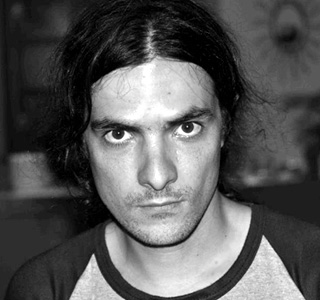A return to public forms of administration in water supplies is a phenomenon that has been spreading globally. Over the past 15 years almost 235 cities around the world, among them Paris, Berlin, Budapest, Buenos Aires and Kuala Lumpur have either terminated or have desisted from renewing the  contracts with private concessionary companies. In the Netherlands, Belgium, Austria and the Scandinavian countries, for example, water delivery is, by a tradition, almost 100 percent public.
contracts with private concessionary companies. In the Netherlands, Belgium, Austria and the Scandinavian countries, for example, water delivery is, by a tradition, almost 100 percent public.
Contrary to world and European tendencies, in Bulgaria the debate on the social cost of private water seems somehow to be taboo.
Satoko Kishimoto from the Transnational Institute in Amsterdam delivered a lecture in Sofia recently on “Reclaiming Public Water”, at the invitation of the New Left Prospects project and the German Rosa Luxemburg Foundation.
In an interview for Radio Bulgaria, Satoko Kishimoto takes a look at different forms of water administration through the years and latter-day challenges:
The biggest problem private companies face are investments – they are long-term and hence unattractive. It is in their best interest to transfer their losses to the “public partner”. This means the public sector and taxpayers will be paying twice over: once as households paying their bills and a second time as taxpayers subsidizing the private investor.
In Bulgaria, the water grid is 36 years old on average, pipelines have not been replaced for close on 40 years. The “Sofia Water” concession, the 77.1 percent share belonging to the French company Veolia Water is the only public-private partnership in the Bulgarian water and sewerage sector and now has a history going back 15 years.
 We asked Georgi Medarov, co-author, together with Vanya Grigorova, of the analysis “In the crosshairs – public water supply”, what the principal flaws of the water supply system in Bulgaria are and whether the “Sofia Water” concession will upgrade the quality of the service.
We asked Georgi Medarov, co-author, together with Vanya Grigorova, of the analysis “In the crosshairs – public water supply”, what the principal flaws of the water supply system in Bulgaria are and whether the “Sofia Water” concession will upgrade the quality of the service.
“The biggest problem everywhere are the losses in terms of the construction of water purification plants and sewerage grids. If any progress has been made at all it is most of all thanks to EU funding. Talking about the Sofia concession, there is no progress towards cutting losses, yet prices have gone up enormously, four times over and above the contract stipulations. Unfortunately, both municipal and state-owned enterprises face the problem of lack of investments. What our analysis shows is that concessions are simply not an option and that other ways must be sought to resolve the problem of this chronic lack of financing in the sector. The fact is that a concession is just a different form of credit and means running up debts; this debt is then factored in water bills. Moreover, private companies also take out loans and have credit-related expenses, but they cost even more than if they were taken out by public institutions. In the long term, expenses run high, with zero benefit to society.”
The so-called public-public partnerships (PuP) are an alternative form of administration, or a cooperative between two municipalities or the state and a municipality. It is a way for citizens to be able to exercise control and sanction inefficient policies through their vote and to help shift the focus from shareholder profits to the quality of the service of providing access to one of the natural resources.
English version: Milena Daynova
October 17, 2025 will go down in history as the date on which the Minister of Culture of Hungary presented the document with which the Tradition of Bulgarian Gardening in Hungary officially entered the UNESCO National Register of..
The center of Bulgaria's town of Asenovgrad is today turning into a colorful scene of flavors, aromas and traditions, in which the spirit of the Red Wall Biosphere Park comes to life , reports BNR's Radio Plovdiv. At the “Festival of Crafts and..
"Folklore is a need for humans and this need will not disappear just like that, " says Assoc. Prof. Dr. Natalia Rashkova - ethnologist and folklorist, university lecturer and researcher with a strong contribution to the study of..
"We cannot escape from modern technologies, but we must think about how we can use artificial intelligence to improve the quality of..
Over 80% of Bulgarians are expected to start using artificial intelligence in the next three years , across all age groups. Today, it is almost..
Serbians around the world mark one year after Novi Sad tragedy On November 1, Serbians abroad will join the call of..

+359 2 9336 661
